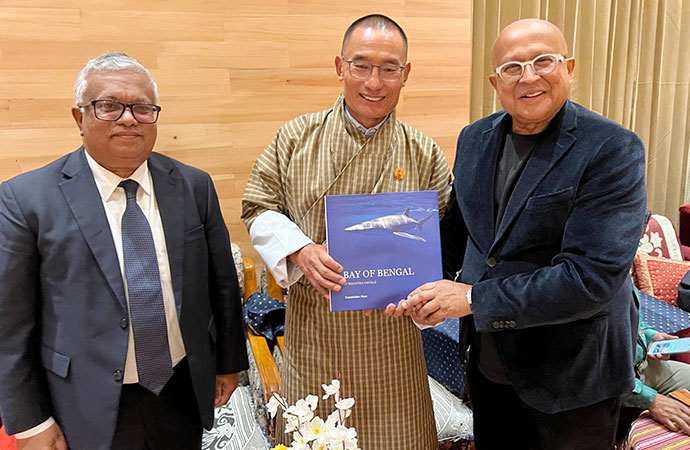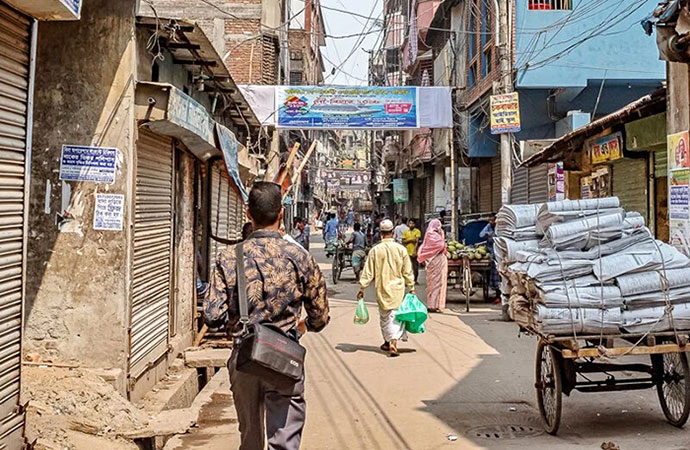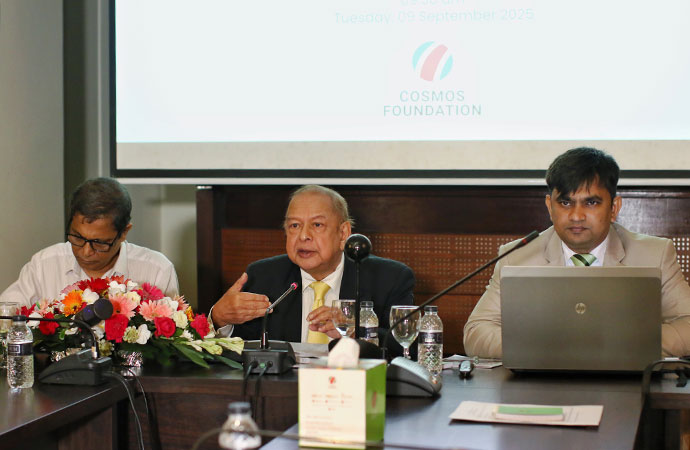Column

Foreign Secretary Asad Alam Siam, Bhutan Prime Minister Tshering Tobgay and Enayetullah Khan, CEO Cosmos Group
Bangladesh and Bhutan share a special relationship. Bhutan was the first country in the world to recognize the independence of Bangladesh in 1971. On the morning of 6 December 1971, the King of Bhutan sent a telegram to the Government of Bangladesh announcing that "we have great pleasure in recognizing Bangladesh as a sovereign independent country. We are confident that the great and heroic struggle of the people of Bangladesh to achieve freedom from foreign domination will be crowned with success in the close future".This announcement from the Dragon King, which came even before the Liberation War had ended, was pivotal in heralding the emergence of Bangladesh. India and Bangladesh are among the few countries which have a resident embassy in this landlocked Himalayan kingdom.
Our relations with Bhutan have been longstanding and multifaceted. Bangladesh and Bhutan are both founding members of SAARC and BIMSTEC. Bhutan's water reserves, emanating from the Himalayas which feed the rivers downstream in Bangladesh, are among the largest in the world and hold the potential for significant generation of hydropower. Bhutan and Bangladesh work together in the context of climate change as members of the Climate Vulnerable Forum. Eco-friendly projects are being developed by Bhutan, including a smart green city in southern Bhutan. Bangladesh has allotted land in Kurigram for a Bhutanese special economic zone which can showcase Bhutan's eco-friendly culture. Bhutan has the distinction of becoming the first carbon neutral country in the world, due to its strong environmental policies as part of its national philosophy of Gross National Happiness (GNH).
I was among the guests at the opening ceremony of the Bangladesh Embassy Complex in Hejo, Bhutan. Standing there, I felt how significant this occasion was for all of us, as it symbolised the glorious ties between Bangladesh and Bhutan, marked by the presence of Bhutan's Princess Eeuphelma Choden Wangchuck, Prime Minister Dasho Tshering Tobgay and other distinguished guests.
In his speech, Prime Minister Tobgay commented that this chancery, and I quote, "is more than a mere structure." He elaborated that new thoughts will burgeon, collaborations will sprout and friendships will strengthen. I envisage his comments as I look through the building's expansive open areas and glass walls. It is impressive how this structure intertwines Bangladesh and Bhutan both physically and in a symbolic sense.
The parcel of land which was granted to Bangladesh for the purpose of the construction of an Embassy showed the 1.5 acres of trust and goodwill. The building which was inaugurated in the foundation stone ceremony of November 2023 was a product of meticulous effort and planning. It was a product of the two-nation desire for a stronger relationship.
Prof. Rafiq Azam, along with his architectural teams, SHATOTTO Architecture, along with other construction corporations in Thimphu as well as ideas-iftekhar and design associates was charged with the responsibility of constructing the wonderful embassy.
The exporting and enhancement of Bangladeshi modern design with Bhutanese elements makes the structure's facade a first for Bhutan. The structure is also invigorating, thanks to the open areas, sun, and gently flowing wind.
Keeping the impact of the famous scholar Atish Dipankar in Bhutan, the embassy's climate conscious design, the flowing Himalayan rivers that meet the Bay of Bengal, and the shape of Bhutanese architecture in mind, the design incorporates all the elements with a Bhutan-Bangladesh connection.
The embodiment of the room, walls and the slabs within reinforces the principles of modern diaspora in Bhutan. It's an assertion of the Mukti and Aman that resonated with all. This will continue to blossom with the interdependence Bangladesh and Bhutan share while expanding their relations.
Distinguished guests also included Norbu Tshering, Chief Justice of Bhutan; Sangay Dorji, Chairperson of the National Council of Bhutan; D.N. Dhungyel, Minister for Foreign Affairs and External Trade; Gem Tshering, Minister of Energy and Renewable Resources; Asad Alam Siam, Foreign Secretary of Bangladesh; and MA Akmall Hossain Azad, Senior Secretary of Bangladesh's Planning Commission.

























Leave a Comment
Recent Posts
Religion and Politics: A Toxic ...
At Dhaka University, cafeteria workers have been told not to wear shor ...
Enayetullah Khan joins AsiaNet ...
AsiaNet’s annual board meeting and forum was held in Singapore, ...
In a New York minute
Many leaders back a UN call to address challenges to ..
Defaulted loans at Non-Bank Financial Institutions ( ..
How the late Zubeen Garg embodied cultural affinitie ..